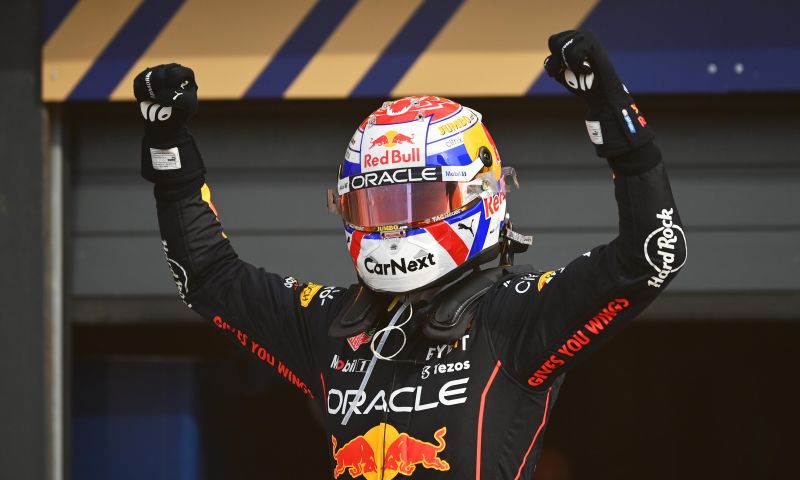Verstappen's season is much like Schumacher's and Vettel's
Red Bull Contentpool
F1 News

- GPblog.com
Max Verstappen could break the record for most wins in a single season in 2022. The Dutchman has already won 11 races, but the record is held by Michael Schumacher and Sebastian Vettel with 13 victories. GPblog compares the seasons of the record holders.
With 11 wins from 16 races, Verstappen is in a shared third place. Sebastian Vettel won as many races in 2011 as the Dutchman has done so far, Schumacher did so once in 2002 and Lewis Hamilton managed to win 11 times in one season no less than four times (2014, 2018, 2019 and 2020). Vettel and Schumacher, however, take the crown with one top season.
Schumacher and the unbeatable Ferrari
Indeed, in 2004, Schumacher broke his own record from 2002 by winning 13 times in a single season. 2003 had been another particularly exciting season with a title race right up to the last Grand Prix. Kimi Raikkonen was two points short of beating Schumacher that year with McLaren, but rule changes in 2004 put an end to all this tension. The banned automatic gearbox and 'launch control' helped Ferrari in the saddle. McLaren and Raikkonen won only one race in 2004.
Two other races went to Williams and Renault, but all the other 15 races were won by Ferrari. The F2004 was supreme and so was Schumacher within his team. Rubens Barrichello won the 15th and 16th Grand Prix that season in Italy and China, respectively. By then, the championship had been decided long and wide. Indeed, Schumacher had won 12 of the first 13 races and would also win the penultimate GP in Japan. Schumacher finished 34 points ahead of the Brazilian with 148 points and thirteen wins.
Verstappen can surpass Schumacher's record of thirteen wins in one season, but his win percentage will be a more difficult task. Indeed, with thirteen wins in an 18-race season, Schumacher achieved a score of 72.2 per cent. Verstappen can surpass that percentage only if he wins 16 races in 2022, for which he, therefore, needs five more wins from the last six races.
Schumacher and Verstappen's season is similar when it comes to the rule change prior to the season. As in 2004, 2022 also helped Red Bull to distance itself more from Mercedes. Verstappen, like Schumacher, benefits from this within a team where he is the clear leader.
Vettel finishes strongly in 2013
Vettel's record season in 2013 also shows many similarities. Here there were no major rule changes before the season (there would be in 2014 with all the consequences for Red Bull and Vettel), but Vettel's season itself was more similar to Verstappen's. Indeed, whereas Schumacher shot out of the starting blocks and seemed to have his world title in by the summer, Vettel, like Verstappen, had some start-up problems in 2013.
Like Verstappen, Vettel had started the season very consistently, but in the first 10 races, Vettel took only four wins. The German was leading the world championship, but Kimi Raikkonen and Fernando Alonso also seemed to have a serious chance. However, Vettel quickly put an end to that after the summer.
Indeed, from the first race after the summer in Belgium to the last race of the season in Brazil, Vettel won every race. This also gave him the record run of nine wins in a row that Verstappen is also chasing in 2022. Indeed, like Vettel, Verstappen came out of the summer break well by winning the first three races, and the Dutchman also won the last two races before the summer break.
What typifies all three seasons is the fact that the drivers get into a certain flow. The other drivers still compete, but on Sunday it is the same driver who comes out on top every time. Indeed, the driver and the car are completely one and hardly beatable anymore. The road for Verstappen is still long, but two wins from the last six races seems a logical progression rather than a particularly difficult task at the moment. Only Schumacher's winning percentage will be very difficult, for which Verstappen needs to win five of the last six races.